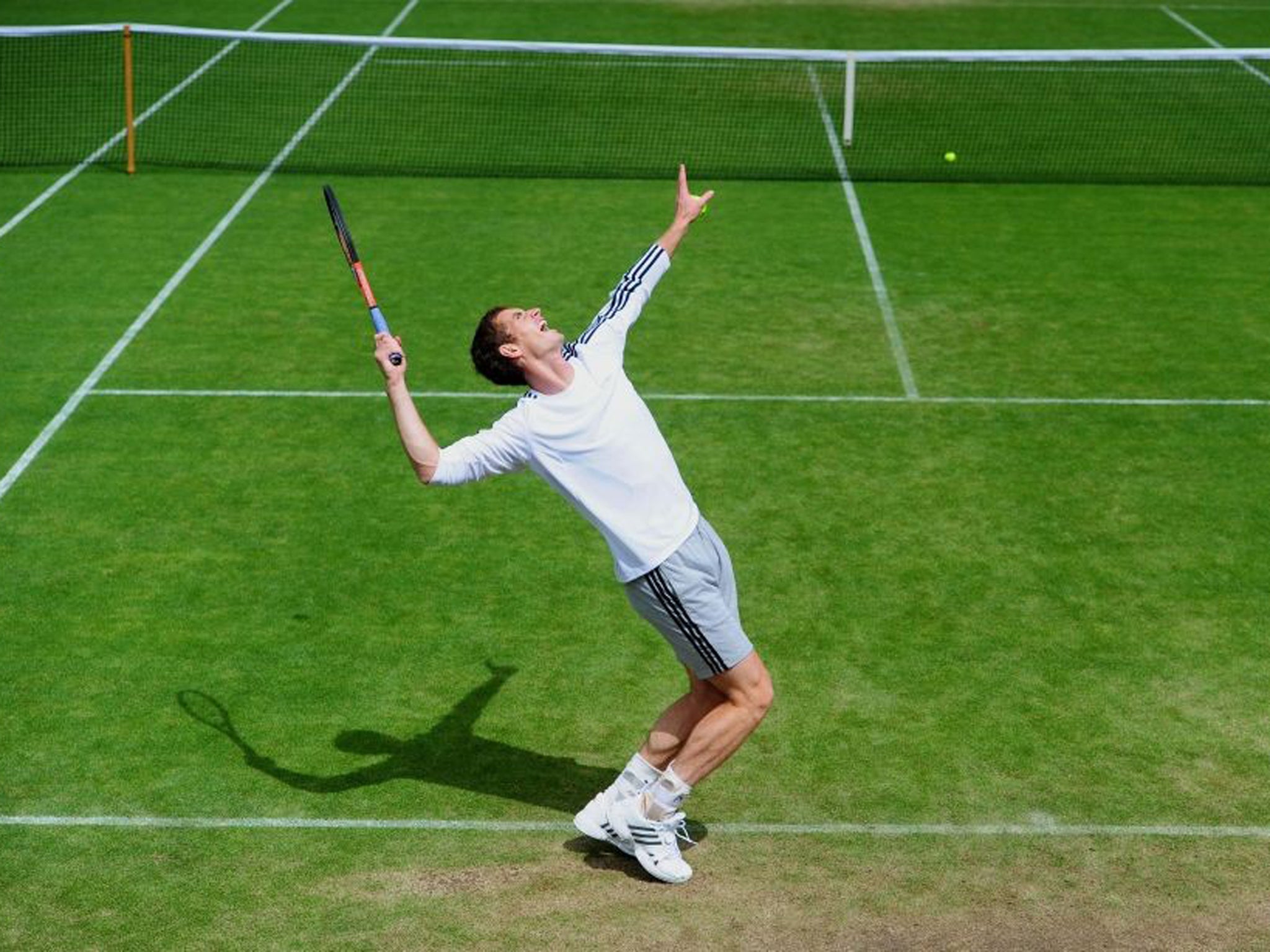Wimbledon 2013: How to mix it like Andy Murray (or at least conquer at the park)

Andy Murray has become a huge threat to the other plays in the ‘fab four’: Novak Djokovic, Rafael Nadal and Roger Federer after his success in the past year and a half.
“I think Murray played great last year throughout Wimbledon and the Olympics, and now again at Queen’s. For me he seems the most natural on this surface and stands out ahead of the other guys”, says Federer.
Murray says: “I’m doing all I can to give myself the best possible chance. I work as hard as I can and as long as I give 110 per cent on the court that’s the best that I can do. When I’ve started to accept those sorts of things I’ve started to play better tennis.”
Prepare physically and mentally
It’s not just about turning up on court. There’s preparation to be done here – both physical and mental.
Here’s Murray on the secret of his success in mind games: “Staying more controlled mentally stemmed from taking my fitness more seriously,” he says.
“When you’re doing track work, sprints and so on, it’s pretty painful, but that does make you feel better prepared and therefore mentally stronger when you’re going into a match. You know, without a doubt, that you are strong enough to last.”
So no excuses: hit the pavements first.
Know when to stop
There are many different factors that could explain the British Olympic champion’s recent success. Could it be his new coach Ivan Lendl? The pressure and determination his mother, Judy has put on his shoulders? Scientists suggest, however, that the real secret to Andy’s success is his rare ability to know when to stop. “Our experiments showed the importance of a person realising early enough when it was best to let go and adopt another similar goal”, said Professor Nikos Ntoumanis, from the University of Birmingham.
Look forward after a defeat
After defeat, instead of getting angry with himself, Murray admits his loss and thinks of how he can play better in his next game. ”[Lendl]'s been on me during practices and in matches all the time about just trying to look forward and forget the past”, said Andy. The 26 year-old dropped out of Roland Garros, the French Open, earlier this month because of a back injury. In doing so, he was able to recover, win Queens and have a better chance of winning Wimbledon.
Adopt a fitness programme
Furthermore, Murray has been following a very tough fitness program in order to insure that the Wimbledon championship crown is his at the end of the tournament. This has helped him maintain power, speed, endurance and strength. “When you train, it’s a lot like tennis,” he says. “You need to have agility, speed, aggression, co-ordination, tactics – there’s a lot of similarity between the sports.”
What Murray needs to improve
If Murray wants to become a Wimbledon champion and make his nation proud, he has to improve his game on the court as well, he has to be more aggressive and be a “in your face” type of player. Though this is not his comfort zone, he must do this if he wants to win.
Murray's second serve may have great placement, but there is not enough pace or spin on the ball to be able to threaten the top players.
With all of this said, Murray's willingness to step inside the baseline and flatten out his returns holds his opponents accountable for balls that are weak and lack work, especially on the second serve.
The backhand up the line will have to become a staple of his game.
Follow game-by-game coverage of Andy Murray's first match of Wimbledon 2013 against Benjamin Becker
Join our commenting forum
Join thought-provoking conversations, follow other Independent readers and see their replies
Comments